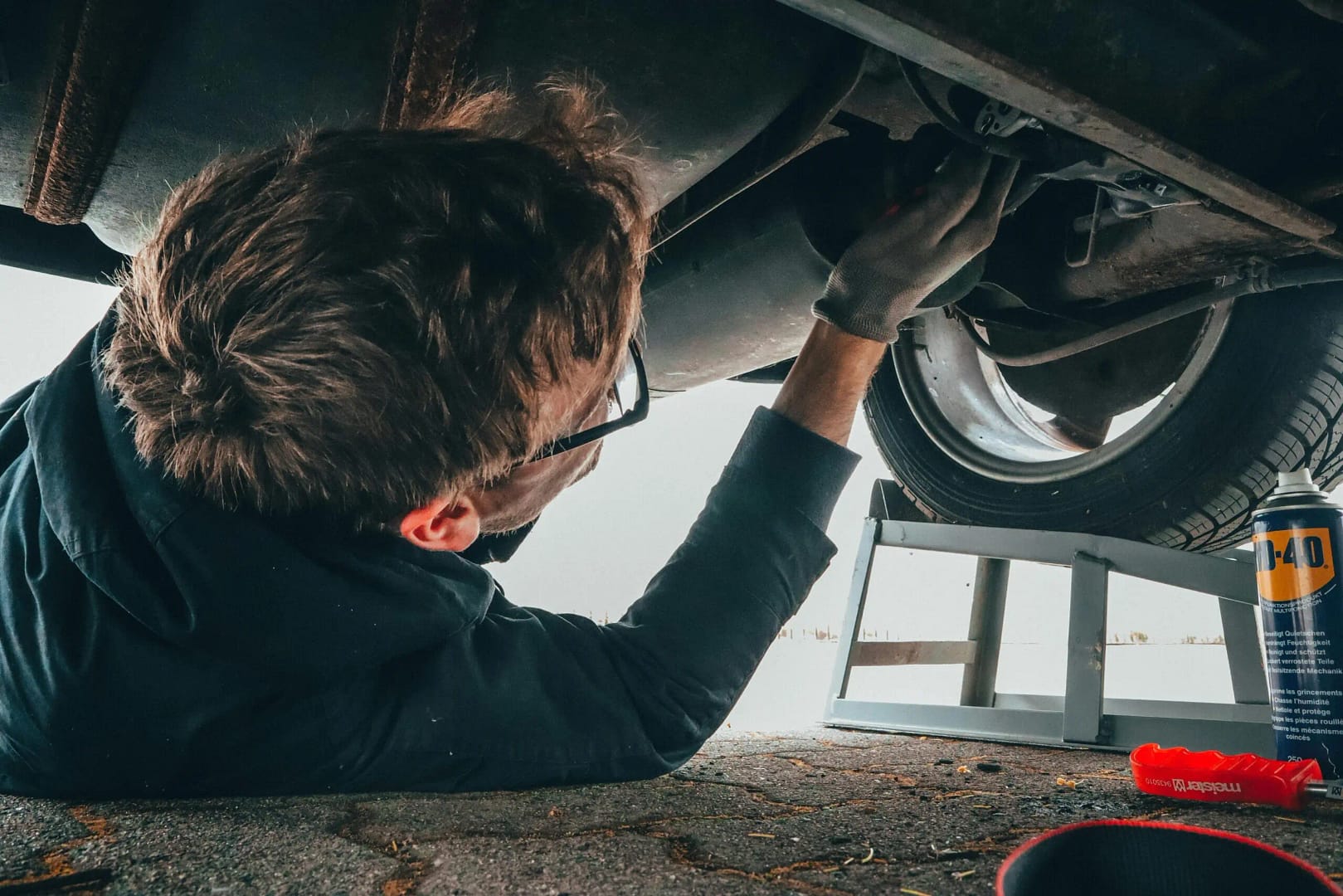How Mechanic’s Liens Are Handled in Bankruptcy
A mechanic’s lien is a legal claim against property, such as a home or vehicle, used as collateral to secure payment for work performed or materials provided. If you’re considering bankruptcy and have a mechanic’s lien, it’s important to understand how these liens are treated in Chapter 7 and Chapter 13 cases.
“Do you know the various Real Estate Liens?”
That was the question posed in an email from our friends at Hunter Law Group. They reminded us of the importance of reaching out to a real estate attorney to ensure our rights are protected if a lien is placed on our home.
Some of the different liens they addressed:
- Tax lien
- Mortgage lien
- Mechanic’s lien
- Junior lien
We will focus on the Mechanic’s lien–
What is a Mechanic’s Lien?
As you start on the road to homeownership, you will likely have to remodel, renovate, or conduct a complete fixer-upper to get your new home looking the way you want it. When starting any large construction project, you hire contractors and builders to help you get the work done. Like any job, workers must be paid on time and correctly.
To ensure labor workers are paid, laws such as a mechanic’s lien are enforced in each state to keep homeowners accountable.
Before starting a large construction or renovation project, it is crucial to understand worker and homeowner laws to keep everyone safe, liable, and getting what they are owed from each side of the contract. Mechanic’s lien is just one of the many statutes set in place, but as you get ready to hire workers for your home, it is an essential law to remember.
Understanding a mechanic’s lien
A mechanic’s lien is a legal claim against a property. A mechanic’s lien is used mainly by subcontractors and builders to ensure they get paid for their work. Even if one payment is missed by you, or the general contractor who hired the subcontractor, a mechanic’s lien can be enforced to get their owed payment.
In many cases, it is a subcontractor executing a mechanic’s lien. You might have hired the general contractor to redo your bathroom, but they might have hired a subcontractor to bring in tile or other materials. If that subcontractor is not paid by the general contractor as promised, a mechanic’s lien can be implemented and be given to you as the homeowner. Meaning, that while you were not the one to hire the subcontractor directly, you are responsible for them not getting paid.
Generally, a mechanic’s lien has a higher priority than other forms of debt within the property project. While it may not seem right that the accountability is on you to ensure payment is appropriately handed out, each state will have its own stipulations set in place, and there are ways to prevent this lien from occurring.
Kansas mechanic’s lien laws
The mechanic’s lien laws in Kansas allow only contractors, subcontractors, and suppliers to be eligible for mechanic’s lien rights. A contractor must have produced labor and materials directly under the contract. At the same time, a subcontractor is labeled as a worker who assumed a smaller portion of the agreement under the general contractor. For a supplier to count, the materials supplied must have been used in the project, not just delivered.
To file a mechanic’s lien, generally, it must be delivered within four months of the contractor’s last day of labor. Then, for a subcontractor, it must be within three months of their work underneath the general contractor’s last date of work.
Missouri mechanic’s lien laws
Under the mechanic’s lien laws in Missouri, general contractors, laborers, suppliers of material, equipment lessors, registered architects, surveyors, and general engineers are all eligible. This can also include landscaping contractors when applicable.
For most of these titles, a lien must be enforced within six months of the last date of labor. However, for an equipment lessor, it has to be done within 60 days of the removal day.
To ensure that your workers and possible subcontractors are paid accordingly, there are many steps you can take to keep the project running smoothly.
First, pay with joint checks. By writing checks out to the general contractor and the subcontractor, you can ensure that both parties are paid for their labor by the end of the job. Another consideration would be to pay the subcontractors yourself. While this may be pricey, it can be a smart way to keep everything together, but it may also lead you to be responsible for things such as withholding income for taxes or Social Security.
A leading way to ensure that you are not tied with any subcontractors used is to sign a lien waiver with your current contractors. By including this clause within the construction contract, you as the homeowner will no longer be liable for the payment of subcontractors or anyone brought in by general contractors through the project.
With the numerous responsibilities that go into building, renovating, or buying a new home, it is crucial to understand what is necessary from you as the homeowner. Simple remodeling projects can have many clauses within them, and by the time it is done, you want to be enjoying your new home, not gathering receipts. To better understand what you need as a homeowner, your rights, or general questions you may have, reach out to the team at Hunter Law Group.
Reposted with permission; @Hunter Law Group 7/20/22
Regarding bankruptcy —
What Is a Mechanic’s Lien?
A mechanic’s lien is a secured property right held by a contractor, subcontractor, or material supplier. Common examples include:
- A lien placed on a home for unpaid construction or remodeling work.
- A lien on a vehicle for unpaid repair services.
Since a mechanic’s lien is a secured debt, it is tied to the property itself and not just the individual who owes the debt.
Can You Discharge a Mechanic’s Lien in Bankruptcy?
The ability to discharge a mechanic’s lien in bankruptcy depends on whether the lien is perfected or not.
Unperfected Liens:
- If the lien was not properly recorded, it may be treated as unsecured debt in bankruptcy.
- Unsecured debts are often discharged in bankruptcy, meaning you may not need to repay them.
Perfected Liens:
- If the lien was properly recorded, it is considered secured debt and cannot be discharged in bankruptcy.
- The lien will survive a Chapter 7 bankruptcy case, and you’ll need to address it later—either by paying it off or resolving it when you sell the property.
Mechanic’s Liens in Chapter 7 Bankruptcy
- What Happens: In Chapter 7, secured debts like mechanic’s liens remain attached to the property. Filing for bankruptcy will not eliminate the lien itself.
- Your Options: You’ll need to either pay the lien in full after resolving other debts or deal with it during the sale of the property.
Mechanic’s Liens in Chapter 13 Bankruptcy
- What Happens: Chapter 13 allows you to restructure your debts, including mechanic’s liens. You may be able to reduce the amount you owe on the lien if:
- The property’s value is less than the total amount of liens attached to it.
- The lien is addressed through an adversary process.
- How It Works: The repayment plan in Chapter 13 may allow you to pay a reduced amount on the lien over time, depending on the property’s value and other factors.
Why You Need an Attorney
Mechanic’s liens can complicate a bankruptcy case. Whether you’re filing for Chapter 7 or Chapter 13, an experienced bankruptcy attorney can:
- Determine whether the lien is perfected or unperfected.
- Help you understand your options for resolving or reducing the lien.
- Guide you through the bankruptcy process to protect your property and financial future.
At Walden Legal Solutions, we specialize in helping individuals navigate bankruptcy and address secured debts like mechanic’s liens.
Schedule your stress-free consultation today!



